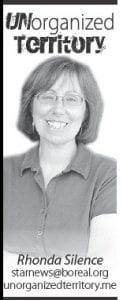It’s Sunshine Week! And although the beginning of Daylight Saving Time is upon us, that isn’t what I’m talking about. Sunshine Week, March 13-19 this year, to journalists is a week to promote dialogue about the importance of open government and freedom of information.
For most journalists, that is nothing new. That is what reporters try to do throughout the year. But Sunshine Week is a special initiative to explain why government transparency is so important to our democracy.
Sunshine Week was created 11 years ago by the Florida Society of Newspaper Editors as “Sunshine Sunday,” in response to efforts by some Sunshine State legislators to create numerous exemptions to that state’s public records law. Because of the work of the Florida newspaper editors and thanks to increased public and legislative awareness after Sunshine Sunday, those measures were defeated.
However, the Florida newspaper editors and others across the United States realized that this is an ongoing issue. With a start-up grant from John S. and James L. Knight Foundation, which has continued to support the effort, Sunshine Week was launched by the American Society of News Editors in March 2005. The non-partisan, nonprofit initiative is celebrated in mid-March each year to coincide with James Madison’s birthday on March 16.
Now, I know, you have to be a bit of a newspaper geek to care. But just as I was getting excited about the reminders of Sunshine Week in my email inbox and wondering how I can accept the Sunshine Week challenge to make transparency in government exciting to readers, I received another email.
It was a disturbing announcement from the Public Notice Resource Center (PNRC) in Falls Church, Virginia, about the Environmental Protection Agency (EPA). Right there, in that announcement was an example of why an independent press is important.
According to PRNC, the EPA is considering a change to how it notifies the public about permits under the Clean Air Act (CAA). The EPA is seeking authority to only post permit activities on its government website— instead of newspapers in the communities where such actions are proposed. Actions that could mean an increase in air pollution in those communities.
Bradley L. Thompson, president of PNRC expressed concern that those who stand to feel the greatest impact from EPA decisions will be “left in the dark until it’s too late.”
Thompson doesn’t mention Sunshine Week, but his message certainly is that of the founders of the initiative. Participants in Sunshine Week wholeheartedly agree with Thompson when he adds, “The Agency’s determination to inform citizens about its plans by posting notices in obscure corners of its website isn’t sufficiently transparent. It is especially unfortunate when pollsters tell us people are suspicious of Washington. Keeping these notices local in places where readers will find them is a good way to combat public cynicism.”
PRNC and 41 print news organizations submitted comments on this proposed rule change, respectfully voicing opposition. I’m pleased that the Minnesota Newspaper Association (MNA) is on that list.
The comments are interesting and cover concerns ranging from the fact that not everyone in America has adequate Internet service to questions about how the EPA would archive notices. In addition there are concerns about verification that a notice was published on a certain date—and was not altered following publication. Government skeptics may not trust the government to police itself.
But the most important point in my mind is that the average citizen is not going to regularly visit the EPA website to learn about its plans. In fact, I’m guessing the average citizen would never visit the EPA website unless he or she saw something in the local newspaper urging them to do so.
The requirement for an independent source for public notices has kept the spotlight on government activities for over 200 years. It should stay that way. And thanks to efforts like Sunshine Week, I believe it will.
I think heroic deeds
were all conceived in
the open air.
Walt Whitman



Loading Comments